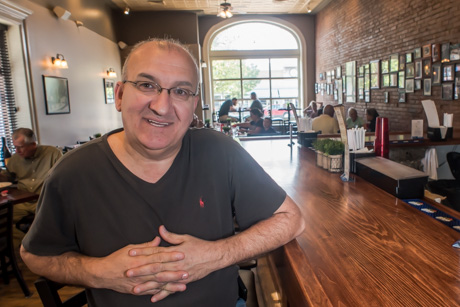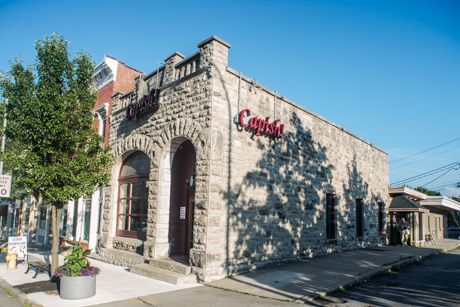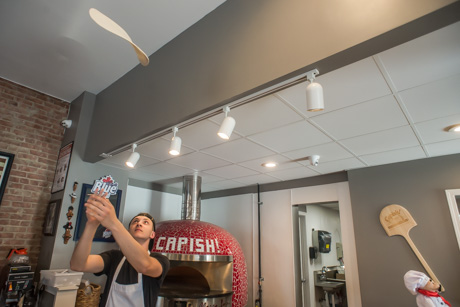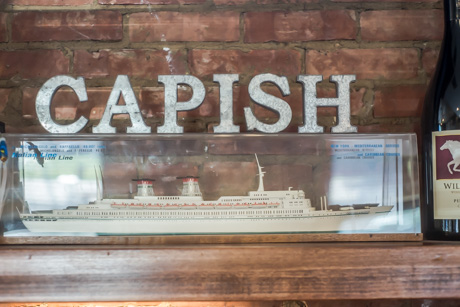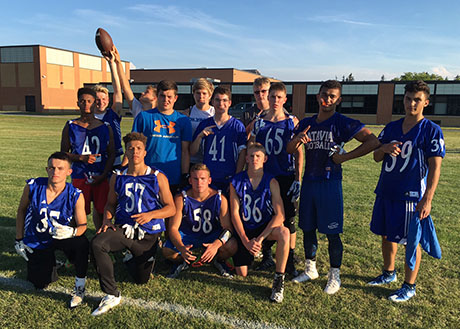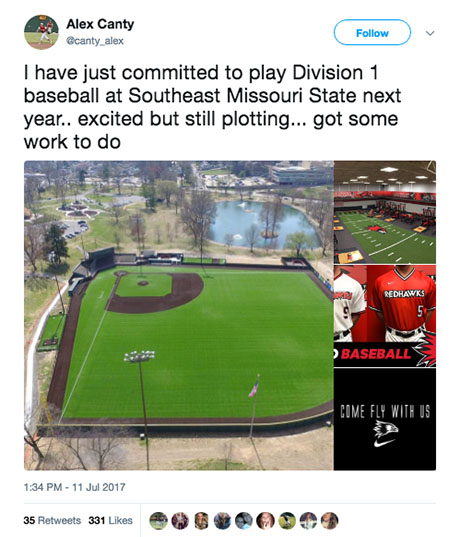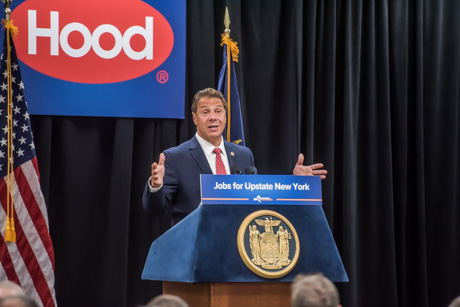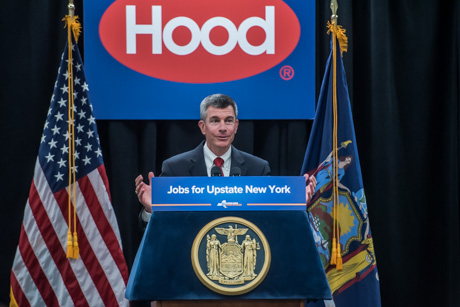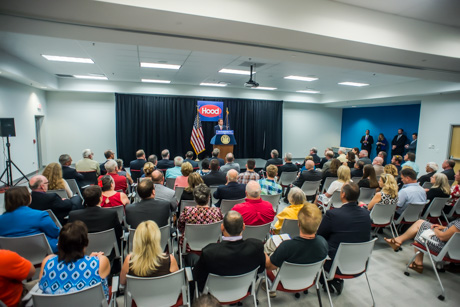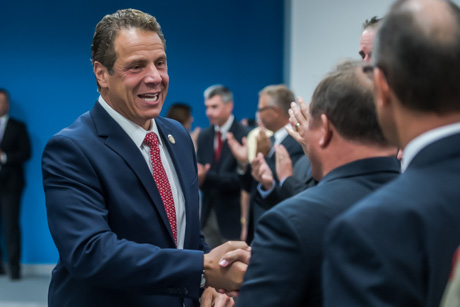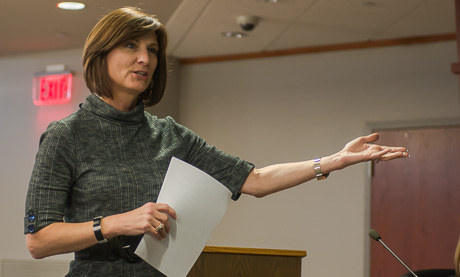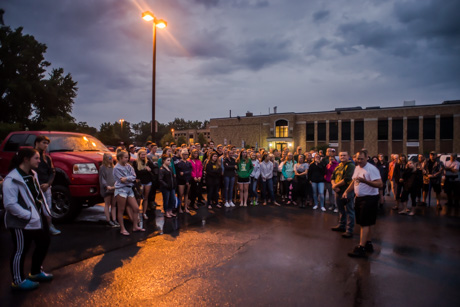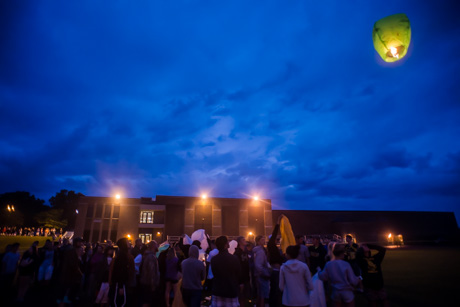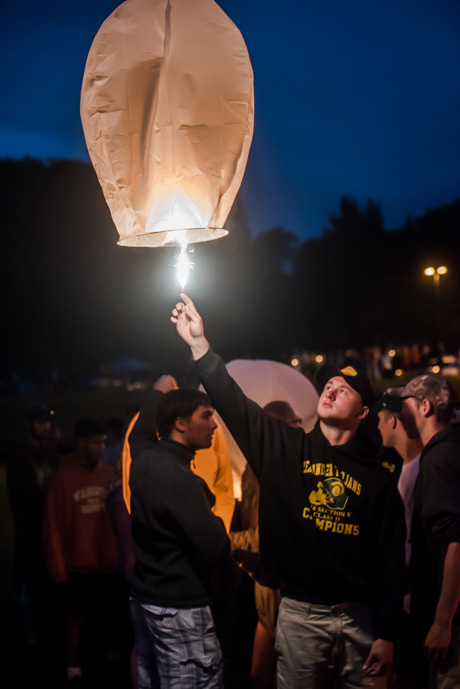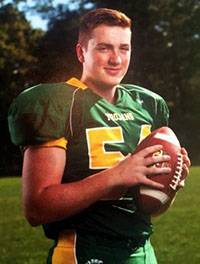Some businesses fail and some thrive, and if New York is going to grow economically, it needs to take the risk that not every business that receives state aid will live up to expectations.
That was the theme of comments by Gov. Andrew Cuomo and Howard Zemsky, president and CEO of Empire State Development, today in Batavia.
Muller Quaker Dairy didn't work out after being promised millions of dollars in state aid (most of which the project never received), but Cuomo and Zemsky are confident HP Hood is a good company for the state to assist as Hood prepares to expand the 363,000-square-foot facility in the Genesee Valley Agri-Business Park.
"If you want to be in the economic development business, you have to get accustomed to the adjustments," Cuomo said. "You know, only 50 percent of the businesses that start exist after five years. Fifty percent. By the time you get to the 10-year mark, only one-third are still in business. That's the nature of business.
"In the state of New York, we're doing economic development," he added. "We're creating hundreds of businesses, creating thousands of businesses. Well, then, you have to be prepared to have that number of defaults because that is the way the world works. The trick is to keep the fundamentals sound. Keep taxes low. Stay pro-business."
Both Cuomo and Zemsky said they believe Hood will succeed in Batavia.
"Think about the spectrum of industries out there," Zemsky said. "On the one hand, you've got relatively low-risk industries -- I would consider fluid milk to be a pretty stable. We're not figuring out if consumers like milk or not. You're not breaking new ground and producing milk.
"So milk is a pretty low-risk investment in the whole spectrum of things. On the other side, you've got chip fabs or really next-generation industries. We do take some calculated risk, but I'd say this is very low on the scale of calculating risk."
HP Hood is a 170-year-old company based in Lynnfield, Mass., with four other locations in New York. The company is licensed to produce, or has produced, brand-name dairy and non-dairy products throughout the United States.
Hood’s portfolio includes its own brand, Crowley Foods, Simply Smart Milk, Heluva Good!, Lactaid, Baileys Coffee Creamers, Hershey's Milk and Milkshakes, and Blue Diamond Almond Breeze.
The former Muller Dairy plant is the largest dairy processing plant -- even before Hood adds 100,000 square feet of the refrigerated warehouse -- in the United States and in the middle of Upstate dairy country. It cost PepsiCo and Theo Muller Group $206 million to construct. Pepsi took a $60 million write-off when the plant closed. It's unknown how much money Muller lost on the venture.
Muller Quaker was attempting to enter an already crowded and competitive Greek yogurt market with a product that tried to position itself as Greek yogurt but really wasn't.
Dairy Farmers of America purchased the plant shortly after it closed in December 2015 for $60 million. News broke in June (as first reported by The Batavian) that HP Hood was acquiring the plant from DFA and last week, Hood closed the deal for $54 million.
To assist Hood with its $200 million investment in the plant, Empire State Development will provide up to $5 million in performance-based Excelsior Jobs Program tax credits. As with Muller Quaker, these tax incentives are withheld until employment targets are met.
There is also a $2 million capital grant from the Upstate Revitalization Initiative.
The Genesee County Economic Development Center is also amending the current PILOT (Payment In Lieu Of Taxes), which will provide Hood with more than $7 million in tax abatements over 10 years.
In return, Hood is planning upgrades and equipment purchases and labor costs for reconstruction of more than $150 million. Construction will create more than 500 jobs. There will be another 230 to 250 permanent jobs at the plant.
The support the state is providing HP Hood has an immediate payoff, regardless of what comes down the road, Zemsky said. He called the support a "no brainer."
"This is huge for the dairy farmers," Zemsky said. "It's huge for the whole footprint of the dairy industry. The returns are immediate. Fifty-four million to buy the plant, about $150 million to repurpose it. Two hundred and fifty jobs. That's more than was here at the peak when it was Muller."
During his public remarks, Cuomo said he's trying to reverse 40 years of Albany's neglect of Upstate's business needs, that includes commiting more than $25 million to the Finger Lakes Region for economic development. He said that's more than any governor in history.
"You keep raising taxes, you make it difficult for businesses to be here," Cuomo said. "I'll tell you what's going to happen at one point -- they're going to leave. And they did. We had what I call a 'hangover New York arrogance.' Well, wait, the businesses will stay here. Where else are they gonna go?
"There are actually other places they can go. You look at a map you will see around the State of New York other shapes squares and triangles. Those are called other states. If you force people, they will leave New York and we have essentially forced people (to leave). It's been a tough business, high-tax environment, high-regulation environment.
He expanded on that theme with the press after his speech.
"We have businesses in New York who just get calls at their desk from other states -- come to my state and you won't have to pay any taxes and we'll send the plane and we'll bring you and your wife for the weekend," Cuomo said.
"It is amazing, the competition. So if you said, 'Well, I'm not going to try to do economic development,' you would just be sitting there as a target for every other state.
"One by one they would pick off your companies, and in a relatively short period of time, you'd be sitting there alone -- losing jobs, losing people, which is what happened to Upstate New York."
Representing Hood at the event was Vice President Jeffrey Kaneb. He is the son of John Kaneb, who first tripled revenue for Gulf Oil to $4.6 billion before selling it in 2005. The Kaneb family acquired Hood in 1995, growing annual revenue from $600 million to more than $2.3 billion.
"We're very excited to have this opportunity to grow our business here," Kaneb said. "We are very very grateful for the support that we've gotten from the governor's office, from his staff, from the county, from the entire community, in getting us to this point. We look forward to becoming a supportive member of this community, a good neighbor, and an employer of choice here in Batavia."
Hood is hiring. People interested in a job should call (1-800) 428-6329.
As for STAMP (Science, Technology and Advanced Manufacturing Park), the super site in Alabama intended to attract high-tech manufacturers, Zemsky said he thinks it's inevitable that big businesses start to move into that park, because of the location and its access to hydropower and fresh water.
However, Zemsky sounded a cautious tone about whether 1366 Technologies, the solar wafer startup from Massachusetts, that was the first announced tenant for the park, ever breaks ground.
"I have met with them," Zemsky said. "I haven't talked to them in a while and I think, again, these businesses are competitive. They have to raise capital. I think they have some more capital to raise, so whether or not it happens depends, but it's not going to be all state-financed."
One of the holdups may be the change in presidential administration, from one that supported renewable energy to one that may be more skeptical about the need to support wind and solar. While 1366 has raised substantial private equity, receiving backing from the Department of Energy seems to be a key component of its financial package. The company was previously promised a $150 million loan guarantee from the DOE.
"I think, like anything, the changing of the landscape politically through regulations of the federal government, the vagaries of the financing market, the price of alternative energies -- these are all factors that make being in business really difficult," Zemsky said.
Hood VP Jeffrey Kaneb.


